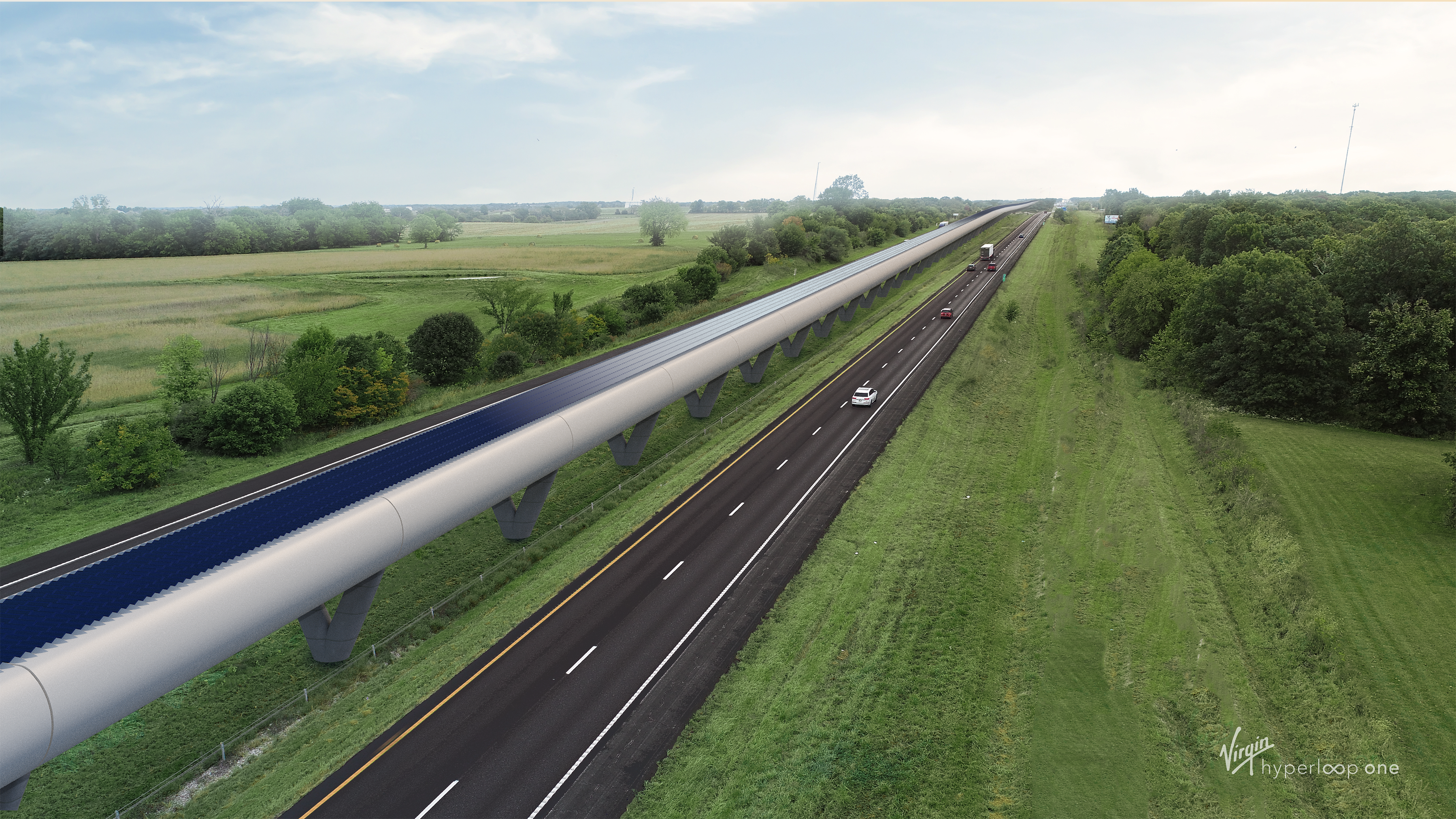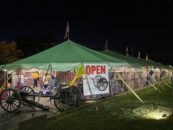Should Missouri be home to the first high-speed mode of travel in the U.S., the state could see thousands of new jobs, billions added to the economy, strengthened industries, and environmental benefits, according to a recently released report.
On Monday, the special Blue Ribbon Panel on Hyperloop released a 176-page report, a compilation of more than six months of work. The bipartisan panel consisting of lawmakers, public officials, and private businesspeople was formed in March and tasked with determining whether it is feasible to build a hyperloop in Missouri.
The panel traveled to Kansas City, Columbia, and St. Louis on Monday touting the report, which called for a 10- to 12-mile test track in Missouri as the next step.
Virgin Hyperloop One — the only hyperloop company with a test track built — is reviewing 10 proposed routes for its first hyperloop track. One of the routes would connect Kansas City and St. Louis with a traveling time of roughly 30 minutes.
Kansas City-based engineering company Black & Veatch conducted the first-ever feasibility study on a hyperloop track. The report confirmed the viability of the I-70 based route through an exhaustive examination of the social impact, station locations, regulatory issues, route alignments, and rights-of-way associated with a new hyperloop system that would connect Kansas City, Columbia, and St. Louis.
Though, as Diana Zhou, director of Project Strategy at Virgin Hyperloop One, previously told The Missouri Times, a Missouri hyperloop is not a done deal.
“There will be no prize for second place,” the task force, chaired by Lt. Gov. Mike Kehoe, said in its report.
The study identified Missouri not being the first — thus, not a central component of any future nationwide network — with a Hyperloop as a key risk.
“However, it is clear that Missouri is the most attractive place to begin a national hyperloop system and therefore beginning in Missouri is the best interest of the nation,” the report said.
And, according to the study, Missouri would see a plethora of benefits, including:
- An economic impact of $1.67 billion to $3.68 billion
- The creation of between 7,600 to 17,200 new jobs
- The reduction of more than 530,000 metric tons of carbon dioxide emissions
- A 50 percent reduction in accident fatalities and serious injuries along Interstate 70
But a Hyperloop also presents “significant risks to Missouri, the United States, and the Private sector partners who are critical to its completion,” the report said.
Some of the “key risks,” per the study, include:
- The hyperloop never being commercially self-sustaining and thereby always requiring some level of government subsidy
- The technology cannot be certified for human safety by U.S. regulators
- The project being unable to attract sufficient private capital
- Potential that the system cannot deliver the social and economic benefits its promises
The Black & Veatch feasibility study estimated the cost between $7 billion and $10 billion. And the Blue Ribbon Panel report offered no solid source of initial funding.
The recently released report said “a public-private partnership to build the Missouri Hyperloop represents the state’s best opportunity” and recommended the eventual creation of a Missouri Hyperloop Corporation to develop a responsible financial plan.
Per the report, a minimum of $50 million to $100 million for research and development need to be available within the next three years. The report also notes Missouri should build a 12-mile test track — which was priced between $300 million and $500 million.
Construction of a National Certification Track, according to the report, is “the first major phase of a multi-phase project that will ensure Missouri’s connectivity to an envisioned national hyperloop network.”

Alisha Shurr was a reporter for The Missouri Times and The Missouri Times Magazine. She joined The Missouri Times in January 2018 after working as a copy editor for her hometown newspaper in Southern Oregon. Alisha is a graduate of Kansas State University.



















